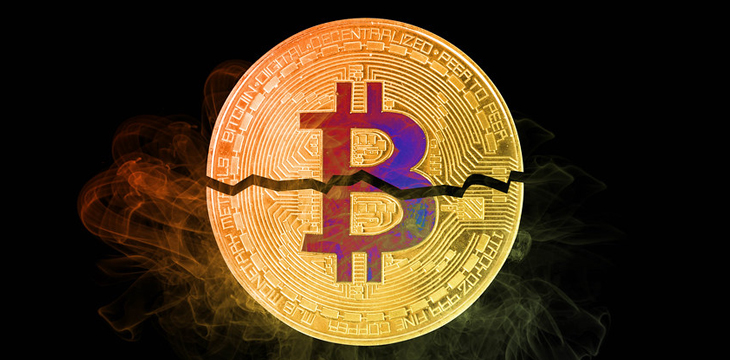|
Getting your Trinity Audio player ready...
|
The reward model of mining Bitcoin was designed not just for a purpose, but to also send a message. That’s the lesson from Dr. Craig Wright’s latest article, Zeno’s Paradoxes and Bitcoin, where he not only explains what that message is, but clarifies what it means for Bitcoin’s future, now being found in Bitcoin SV (BSV).
The Zeno Paradox Wright specifically refers to is the Dichotemy paradox, which states:
That which is in locomotion must arrive at the half-way stage before it arrives at the goal.
– Aristotle, Physics VI:9
In the context of Bitcoin, this refers to the halving of mining rewards over time. In Zeno’s context, the paradox was that an infinite number of halvings sets up an infinite number of tasks, preventing the goal from ever being achieved.
“If we take 100 as an arbitrary amount because percentages are linked to 100, we can now transform the values in a way that has meaning,” Wright notes. “You will notice the block reward in the first four years to have been at 50 bitcoin per block for the subsidy. It then drops to 25, then 12.5; and so on. And I have written them as 50/100, 25/100, et cetera for a reason.”
Wright comments that he set up halving to work this way to specifically signal exactly how much Bitcoin was already mined, and how much remained. “When the block subsidy halved to 25 bitcoin, miners knew at a glance that 50% of the bitcoin that would ever exist had been put out to market and that 25% would be remaining after the current block-subsidy period,” he writes.
What is the message meant to say? Not that halvings should create bumps in value, but rather than they won’t. It’s a signal that mining for block rewards has a lifespan, and that another motivation should take over in the long run.
Unfortunately, those who seek to keep Bitcoin as nothing more than a store of value, specifically the SegWitCoin (BTC) promoters, have flipped the meaning of halvings. “Instead of a Zeno’s paradox, some promoting bitcoin in a Ponzi-like manner arguing that the price will double every halving are subject to the Persian chessboard or the rice and chessboard problem,” he notes.
Specifically, BTC halvings have been pushed as a reason for the price to jump. On the surface, that sounds great for investors and miners alike, as a higher price would mean rewards would be worth more, assuming the price kept climbing with adoption. In practice though, as rewards will eventually halve to the point of worthlessness, without a better business model, miners will drop off, making the blockchain worthless.
The solution to this, as Wright has always envisioned, is in transaction fees. In a massively scaling model, now pursued by BSV, countless transactions take over as a new profit motive for miners, replacing block rewards entirely in the future. “Luckily, we have managed to demonstrate blocks the size of 2 GB on the Scaling Test Network (STN) and will be increasing the capacity further at a level that applications and other development teams can keep up with,” he writes. “In the coming years, we will be running blocks that are in the order of tens of terabytes in size. We will do so at a rate and cost that allow us to subsume all other transactions on the globe. We will do it more securely and inexpensively than PayPal, than Visa, than Mastercard, or than cash.”
As a final note to those who continue to push BTC as the government-averse option, Wright notes that they are totally missing the point. “Bitcoin’s value did not ever lie in subverting government or banks, it lies in Bitcoin’s efficiency,” he concludes.
https://www.youtube.com/watch?v=gBb9FSxfyVs

 12-14-2025
12-14-2025 





